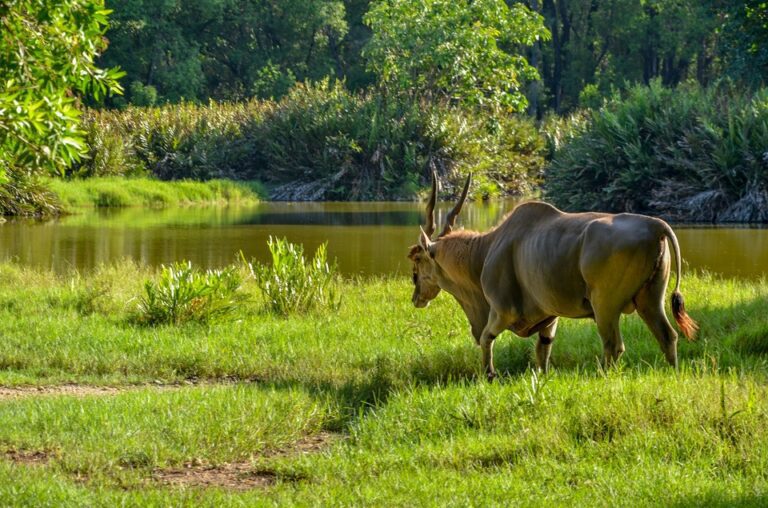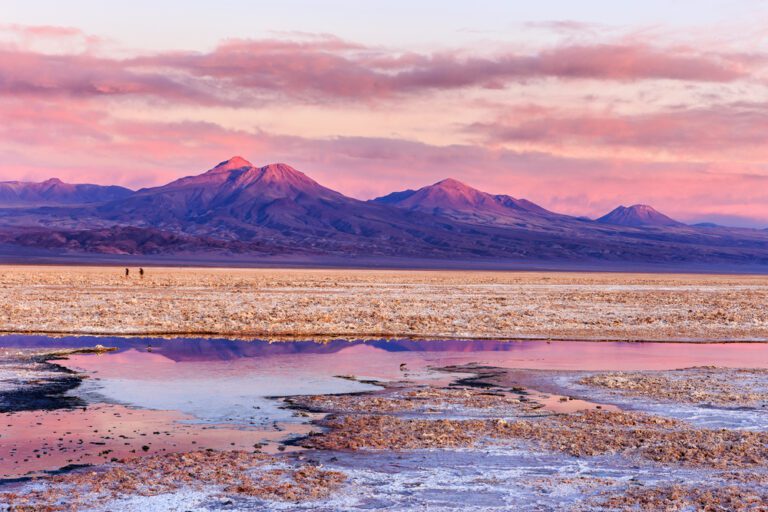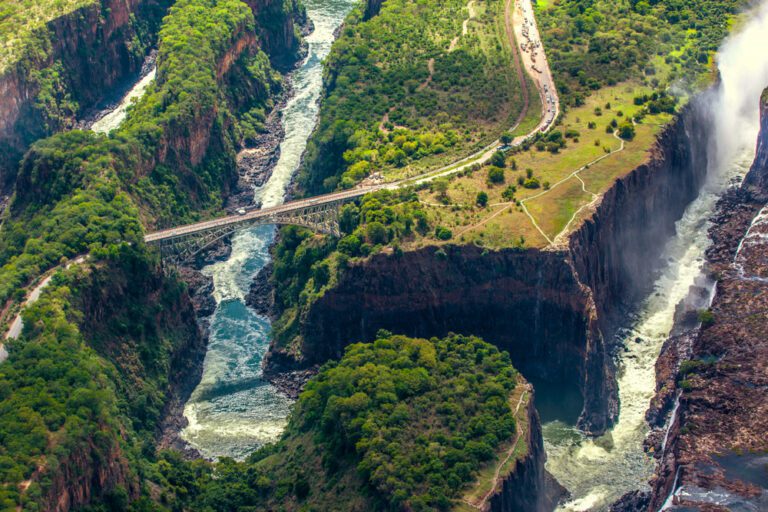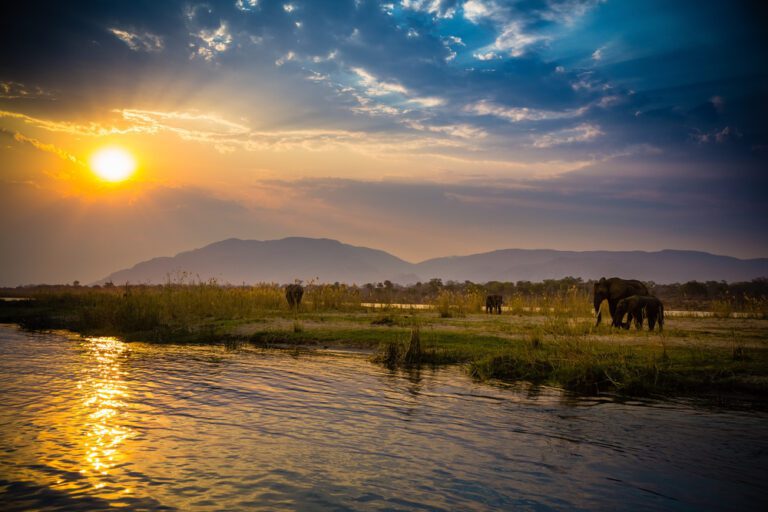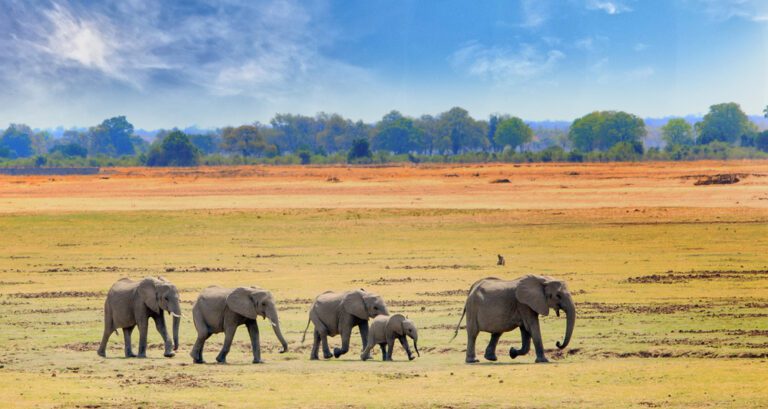DEOGARH – The fort of the Gods, Deogarh looks out over its kingdom from atop a green hilltop. This small village was once the capital of an ancient Gond kingdom. This citadel is believed to have been spread over a large area, as attested to by archaeological evidence in the form of the remnants of tanks, wells and other structures. All that stands here today is the remains of the actual fort, after which this tiny town is named. You could spend hours soaking in the serenity that pervades this desolate green space. In the midst of this sightseeing, you realise that somehow you have become less a tourist and more a person on a spiritual journey. It is then, as the Dalai Lama says, you might find that sense of elusive inner peace (both Lalitpur and Jhansi railway stations are convenient options to get to Deogarh).

AMARKANTAK – Look no further-we’ve found the doorway to Nirvana. The Hindus believe that this land is sacred, for many reasons. One may be that the holy River Narmada flows through it, which many people believe has unique purifying powers. Another is a story that when Lord Shiva destroyed Tripura by fire, one of the three ashes fell upon Amarkantak and sprouted a thousand shivalingas. However, one doesn’t need to hear the stories to believe this place is truly spiritual.
Just standing on the banks of the River Narmada – which many believe to be purer even than the Ganga – during an evening puja can be a deeply moving experience. The temples of Kapildhara, Kalchuri and Narmada Kund are as regal as they are beautiful, and they radiate a tranquil atmosphere that invites you in. They are the reason Amarkantak is a popular Hindu pilgrimage centre, often known as Teerthraj – ‘the king of pilgrimages’.
The Vindhya, Maikal and Satpura ranges, which meet here, form the most beautiful backdrop to this spiritual centre. The rivers Sone and Johila also flow through these lands. Botanists will delight in the rich variety of medicinal plants that can be found growing here, and nature enthusiasts will be enthralled with the woods that lend the place a rustic air. There are also a number of holy lakes to visit. It is also interesting to visit the nearby villages to learn about tribal culture, or to converse with the Hindu sadhus that pray outside the ashrams. It is no wonder that Amarkantak is the perfect choice for a hill-station retreat, whether it is on a solo trip in search of a higher power, or a family trip in search of great memories.
BANDHAVGARH – A little reading about Bandhavgarh, one of the best-known national parks and tiger reserves in the country, will reveal the story of Sita and Charger, its ferocious tiger couple. They once roamed through the forests of this park, the king and queen, allowing visitors to gawk at their beauty. This land – the land of tigers – is the perfect place at which to understand the workings of the animal kingdom. Here, you learn that survival of the fittest is most important. Nowhere are you more aware of the fragility of life and the suddenness of death than in this reserve, face to face with tigers that look condescendingly at you through amber eyes.

Even then, the chase is thrilling, and, fear not – the forest rangers will ensure your safety! Of course, there is much more to see. The park is home to 37 species of mammals, 250 species of birds, and 80 species of butterflies. It has the highest population density of the royal Bengal tiger in the world, and also the largest breeding leopard population. History has certainly found its place here. Archaeological surveys state that Bandhavgarh dates back to a time before Christ, and there are several ancient inscriptions and rock paintings inside the caves that dot the landscape here.
You can visit the Baghel Museum, where the personal artefacts of the Maharaja of Rewa are displayed (10am – 3pm, 5pm -8pm). Also marvel at the Shesh Shaya, an 11m-long statue of a reclining Lord Vishnu topped with a ‘Shesh Nag’, and pay your respects at the Jwalamukhi Temple on the banks of the Charan Ganga River (11km).
JABALPUR – Did you know the city of Jabalpur is where the game now known as snooker originated? This is but one of the several interesting things about this cultural capital of Madhya Pradesh. One of Jabalpur’s most famous sights is the marble rock formation at Bhedaghat (26km away), which changes form as the River
Narmada sculpts it with her flowing waters. You might fail in love with the view of the 100ft-high mountains here, but the real star here is the Chausath Yogini Temple, which counts among the most ancient heritage sites in the country. Speaking of amour, the Dhuandhar Falls (30km away) will have you on your knees; its ferocious roar, coupled with its gentle beauty, makes it one of the crown jewels of Jabalpur. The city’s imperial history is romanced by the nature that surrounds it; the massive Dumna Nature Reserve Park (10km away) is utterly beautiful, and a great picnic-and fishing-spot for families. Jabalpur also has one the tallest sitting statues of Lord Shiva in India, standing at a whopping 76ft.

Soak up the history of the city by visiting the Madan Mahal Fort (12km away) and Hanumantal Jain Mandir. You can also visit Tilwara Ghat, where Mahatma Gandhi’s ashes were immersed. An interesting illusion created by nature, the famous Balancing Rock is a great place to visit, and makes for interesting photographs. And do not miss the ancient inscriptions of the Edicts of Ashoka at Rupnath. But, if the way to your heart is through good food instead, make sure to bite into the famous gakkad-bharta and khoye ki jalebi unique to Jabalpur. We won’t judge you if you find yourself trying to smuggle jalebi into your luggage on your way home.
SANCHI – The peaceful town of Sanchi is a UNESCO World Heritage site and home to the famous stupa built by Emperor Ashoka in 3rd century BCE. The Sanchi stupa is one of the best preserved early stupas in central India, and is considered to be one of the earliest examples of Buddhist architecture, and is surrounded by gateways on all the sides. These gateways are the finest specimens of early classical art, and carry carved scenes of the life of the Buddha and Ashoka. The Ashoka Pillar, among the other scattered ruins and structures here, is at the southern entrance.
It is an excellent example of the Greco-Buddhist style, and is known for its artistic proportions and exquisite structural balance. The crown is the lion capital, the famous four lions standing back to back, which was adopted as the national emblem of India. You cannot miss the Archaeological Museum, which houses historical artefacts like metal tools and stone sculptures dating back 2,000 years, taking you back to a bygone era (10am – 5pm, closed Fri).
BHIMBETKA CAVES – A sentinel of prehistoric art and architecture in India, the Bhimbetka caves were named after the Pandava Bhima from the Mahabharata. The entire region of Bhimbetka is dotted with caves, more than 600, in fact, which are classified a World Heritage site by UNESCO. Paintings dating back to the Paleolithic, Mesolithic and Neolithic periods adorn the walls of these caves.

The prime attraction of Bhimbetka, these cave paintings feature community activities like birth, burial, religious rites and hunting scenes and have miraculously avoided the vagaries of time. These prehistoric rock shelters speak volumes in terms of information from periods dating back over a thousand years. Of particular interest to visitors are the Auditorium Rock Shelter, Zoo Rock and Boar Rock from the cave cluster.


